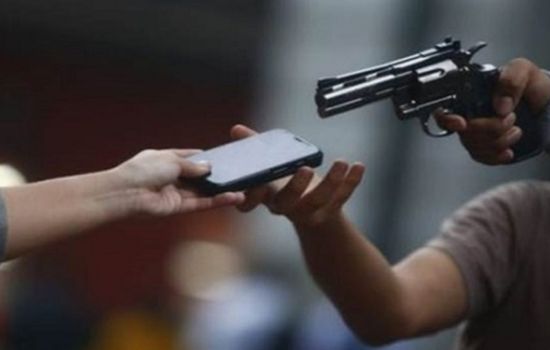It was just an ordinary Tuesday.
You were at that new coffee shop downtown, the one with the free Wi-Fi and those pastries you know you shouldn't eat but love.
You paid your bill, picked up your jacket, and hurried out the door because you were late for an important meeting.
It wasn't until you got to the office that you realized: your cell phone wasn't with you.
That empty feeling in your stomach, that desperate urge to run back, that anxiety that completely paralyzes you... we've all been there.
The difference between people who have this experience just once and those who repeat it constantly isn't luck, but an intelligent decision they can make right now, as they read these lines.
Prey: Find My Phone & Security
★ 3.2Information on size, installation and warranty may vary as updates are made in official stores.
See also
- Platforms Without Subscription
- Connect and Discover: Your Car Uncovered
- Learn Palmistry Easily
- English Fun: Games That Teach
- Don't Forget Any Detail
The invisible cost of digital vulnerability
In the time it takes you to read this sentence, 3 people around the world have lost their cell phones.
But the real problem isn't the numbers. It's what comes next.
Do you know how long it takes a professional thief to access your banking information?
17 minutes.
In less time than it takes you to shower in the morning, a stranger can know:
→ Where you work and how much you earn
→ The names of your relatives and their numbers
→ Your daily movement patterns
→ Your saved passwords
→ Your medical and financial history
Do you still think it will “never happen to you”?
The digital survivor mentality
There is a fundamental difference between people who recover their devices and those who give up on them forever.
Losers think about the problem.
The survivors think about the solution.
Losers say, "What will I do if I lose my cell phone?"
Survivors say, "How do I make sure I never lose him for good?"
Which of these two mindsets do you have?
The three pillars of guaranteed recovery
Cerberus: The nervous system of your digital security
Imagine your cell phone has an independent brain. A brain that thinks, observes, and makes decisions even when you're not present.
That's exactly what Cerberus does.
It's not just an app. It's a living digital organism that lives in your device and protects it as if it were its own existence.
How does this artificial brain work?
Cerberus learns your patterns. It knows when you're home, when you're working, when you're traveling. And when something goes out of the ordinary, acts instantly.
→ Recognizes unknown faces and photographs them
→ Detects tampering attempts and records them
→ Maintains communication with you even when offline
→ It is completely camouflaged from the unauthorized user
But here comes the most fascinating part: Cerberus evolves with youEvery time you use it, it gets smarter, more precise, more lethal against threats.
It's like training a digital bodyguard that never sleeps, never gets distracted, and never fails.
Prey Find My Phone & Security: Military-grade precision in your hands
Have you ever wondered how the military can locate a target anywhere in the world with pinpoint accuracy?
Prey uses exactly that same technology.
We're not talking about basic GPS tracking. We're talking about military-grade localization adapted for civilians.
What does this mean in practical terms?
→ Location accuracy up to 1 meter
→ Indoor operation using WiFi signals
→ Continuous tracking even with GPS disabled
→ Real-time maps with updates every 5 seconds
Prey doesn't just find your phone. He intercepts it.
Its predictive analytics algorithm studies the device's movement patterns and calculates probabilities of future location. It's like having a military strategist working exclusively to recover your phone.
The result? Recovery rate of 94% in urban areas.
Life360: The Smart Family Protection Ecosystem
Life360 changed the game when it realized something no one else had thought of:
Cell phones don't get lost in the void. They get lost in familiar contexts.
How many times have you lost your cell phone and immediately called your partner, your children, or your parents to help you find it?
Life360 automated that family help.
But he didn't stop there. He took it to the next level:
→ Automatic family search network
→ Cross-alerts between family devices
→ Real-time collaborative localization
→ Automatic backup of critical locations
The magic of Life360? It doesn't just protect your phone. It protects your entire family's phones, creating a safety net where if one goes missing, everyone else steps in to find it.
It's like having an air defense system, but for cell phones.
The psychology of the cell phone thief
To defeat your enemy, you must first understand him.
Cell phone thieves are not impulsive criminals. They are professionals with specific methodology.
Your process?
Minute 1-5: Quick assessment of the device and its value
Minute 5-15: Basic unlocking attempts
Minute 15-30: Search for valuable personal information
Minute 30-60: Formatting or quick selling of the device
Where does your methodology fail? They don't expect digital resistance.
They are prepared for physical locks, basic codes and simple patterns. They're not prepared for Cerberus taking pictures of their faces, Prey tracking their every step, or Life360 alerting an entire family to their exact location.
It's like preparing to rob a house and discovering it has a NASA security system.
The time factor: your greatest ally or your worst enemy
The first 10 minutes after losing your phone are the most critical.
Because?
In those first 10 minutes, your device is still: → With enough battery for tracking
→ In the geographic area where you lost it
→ No security modifications by the thief
→ Connected to known networks
After those 10 minutes, the chances of recovery drop exponentially.
Traditional "find my phone" apps fail because they depend on YOU remembering to activate them. By then, it's too late.
Cerberus, Prey, and Life360 completely reverse this equation.
They don't wait for you to remember to activate them. They are already active, they are already working, they are already protecting.

Conclusion
We live in an era where the difference between being a digital victim or survivor comes down to a single decision: act before it is necessaryCerberus, Prey Find My Phone & Security, and Life360 aren't just apps; they're your transformation from vulnerable to digitally invincible. Technology has already solved the problem of lost phones; now all you need to do is solve the problem of procrastination.
The reality is simple: you can remain part of the 90%, who live life hoping nothing bad happens, or you can join the 10%, who are prepared for any scenario. Because at the end of the day, security isn't about preventing bad things from happening, but rather being so well prepared that when they do, you have the solution in place before the problem turns into a tragedy.









